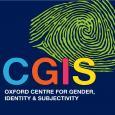LGBTQ Workshop
*JUST ANNOUNCED* We are pleased to announce that our Keynote Speaker will be Chris Waters (Williams College).
2:00-3:30pm Opening Seminar [Gerry Martin Room]
Wanted: a history of homosexuality. Found: an ‘archive of ordinary racism’
Professor Heike Bauer (Birkbeck College, University of London)
3:30-3:45pm Coffee and tea [Thirsk Common Room]
3:45-4:45pm Oxford DPhil Work-in-Progress Session [Gerry Martin Room]
Sonia Cuesta Maniar:
'Forced into the mould against my will': Repression of LGBT persons under Francoism, the creation of a national identity paradigm, and dissidence in Francoist Spain
Ira Roldugina:
Speaking for themselves: early Soviet queer agenda from below
5:00-6:45pm Keynote Lecture [Lecture Theatre]
Gay Icons, Queer Pasts, and the Practices of History
Professsor Chris Waters (Williams College)
We are pleased to announce Chris Waters as the Keynote speaker for our LGBTQ History Workshop
Gay Icons, Queer Pasts, and the Practices of History
What is a gay icon? How are gay icons made? What relationship exists between the icons we have come to celebrate and the worlds in which those individuals we have rendered iconic once existed? What function do gay icons play in our own political battles today? How does the existence of gay icons inform the kind of history we write and the understandings of the past we generate? These are some of the questions that will be addressed in this talk. Specifically it will focus on three individuals, all related in some way to British queer life in the 1950s – Oscar Wilde, Peter Wildeblood, and Alan Turing – dissecting the ways in which those lives have been variously remembered (or forgotten), exploring how they have been represented and rendered iconic, and assessing the historical and political work their iconic status has generated. Oscar Wilde, perhaps the gay icon par excellence today, was anything but a gay icon in the 1950s and the talk will explore how the attempts to secure his reputation as a literary figure of repute depended very much on the erasure of his queerness, despite the ways in which he slowly came to circulate as an icon in the homophile movements at the time, especially in France and the United States. Largely unknown in the 1950s, outside of a small circle of computer scientists and mathematicians, Alan Turing has also gained gay iconic status in more recent times, a phenomenon, it will be argued, that began in part with the work of the gay left in the 1970s and early 1980s that rendered him intelligible to a contemporary generation of gay men. And while Peter Wildeblood played a crucial role in the battle to decriminalize male homosexuality in Britain in the 1950s, his own status as a gay icon has only come about more recently. Not only will this talk focus on the history of recent gay appropriations of these individuals as heroes and martyrs, but it will also speculate on the implications for writing the history of the queer past through the prism of these now iconic individuals.
Chris Waters is the Hans W. Gatzke ’38 Professor of Modern European History at Williams College (Massachusetts, USA)



